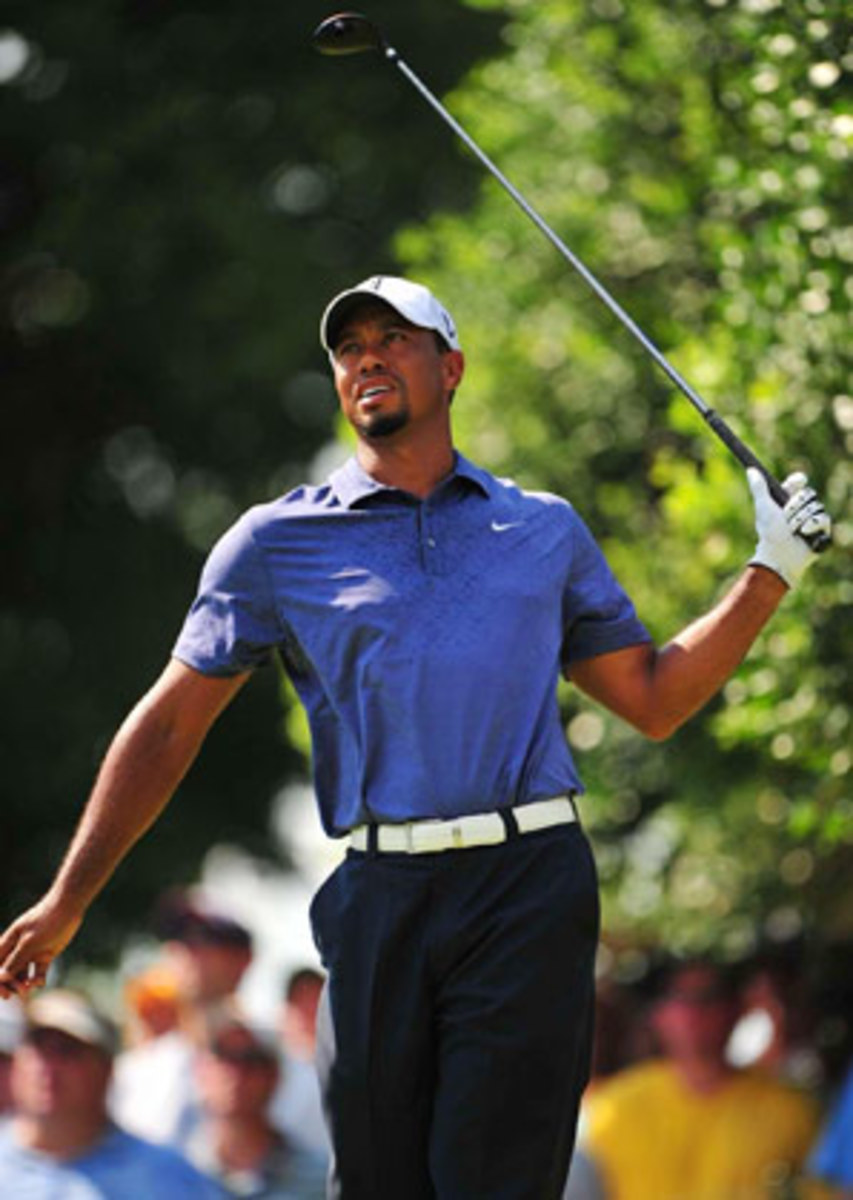Rankled by rankings
The news that Tiger Woods, for the first time since 1996, is not ranked among the Top 50 golfers in the world is not really news at all, but then rankings have always rankled me. Is Woods, at number 51, a worse golfer than Aaron Baddeley at 50 -- or better than Jonathan Byrd at 52? On paper, perhaps, but if golf were played on paper, you could aerate the greens with a three-hole punch.
Woods' startling fall from number 50 (last week) to number 51 (this week) made the news only because human beings love and require rankings. Forbes ranks the richest Americans, SportsCenter ranks the Top 10 Plays and any publication wanting to get a rise out of its readers ranks the nation's Worst, Fattest or Least Livable Cities, reminding us that one definition of "rank" is "to provoke with malicious criticism."
It's really the only definition. Nothing provokes, for instance, like preseason college football rankings, in which fans of any school not ranked number 1 -- or fenced out of the Top 25 altogether -- will have felt personally and viscerally violated, despite their teams not yet having played a down. But that's the whole point of rankings: To put you in your place, to tell you where you stand. To rank you and to rank on you are the same thing.
If you want to know where a team really stands you might want to consult something called the standings, whose name offers a subtle clue. As Bill Parcells put it, "You are what your record says you are." Conversely, you are not necessarily what the AP poll, or the FIFA rankings, or the Official World Golf Rankings say you are.
And yet we persist in ranking everyone. When Boston mobster James (Whitey) Bulger was busted in Santa Monica this summer after years on the lam, the FBI emphasized that its list of Ten Most Wanted fugitives is not a ranking: There's no Public Enemy Number One out there, evading capture in an oversized foam finger. People nevertheless believe there is, perhaps because our same government persists in ranking Al-Qaeda operatives by number -- Al-Qaeda Number 3, Al-Qaeda Number 4 -- on its ever-changing depth chart of terror.
The Ten Most Wanted list, instead, is a sop to citizens who demand a public pecking order in every area of human endeavor. And so Tilen Zitnik of Slovakia is the 1,941st best male tennis player in the world, according to the ATP rankings, which are sponsored by South African Airways, a perfect marriage, as airlines are all about hierarchical humiliation, from Boarding Group 1 to that last middle seat in coach, where Tilen Zitnik now finds himself, next to a crying baby, while up in First, Novak Djokovic sips Champagne in his lie-flat seat.
Rankings reek -- there's a rank odor -- of social standing and class system and high school cliques. Why the world needs to know that Craig Spence of Australia (at 1,358) is a shade worse at golf than Vikrant Chopra of India (at 1,357) is a question that concerns few beyond Misters Spence and Chopra, and their respective swing coaches. And yet the pull-down menu of world golf rankings plunges even farther down than those two, our ears popping on the descent to number 1,376, where there are 25 names with the same point total. They provide a good pickup line -- "I'm in a 25-way tie as the 1,376th best golfer in the world" -- but such comprehensive rankings seem otherwise unnecessary.
They're not all bad. If we were to rank the rankings, a top five would have to include American Top 40, when Casey Kasem hosted. (If Casey would consent to read the Top 40 tennis players every Saturday morning -- "Coming in at number 39, all the way from Italy, it's Fabio Fognini" -- I'd listen.) And of course David Letterman's Top Ten would be there as well. (Twenty-five years on, I haven't forgotten the Top Ten Least Popular Exhibits at the Baseball Hall of Fame, including "Steve Garvey's bed and on-deck circle.")
But that's about as seriously as anyone should take rankings. When US News & World Report recently published its annual rankings of the Top 100 colleges and universities, former George Washington University president Stephen Joel Trachtenberg warned in The Atlantic: "Allowing life decisions to be dictated by mindless rankings is like determining your future by reading your horoscope in the daily newspaper."
It's good advice, and worth remembering: You'll never hear of a Top Ten being carved in stone, handed down from God on some mountaintop, telling you how to live your life.






